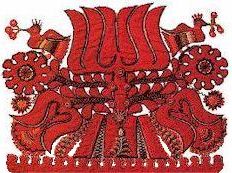|
Brief information |
|
| Reviews |
|
| Photos | |
|
Political Section Participating on behalf of Hungary were State Secretary of the Foreign Ministry Mr. István Szent-Iványi, MP and Chairman of the Parliamentary Commission on Ethics Mr. József Géczi, and Vice-President of the Parliament of Finland. There were many speakers who were either members of Finnish, Estonian and Russian parliaments or represented their peoples in public offices of the Russian Federation. Reports were delivered on popular movements and their relations with various administrative bodies in their countries. Facts on Finno-Ugric autonomous areas and districts and on their connection to authorities, including those of the Russian Federation, were also provided. The current opportunities and prospects of Finno-Ugric peoples were discussed. Participants pointed out repeatedly that, during the last years, democratisation has acquired the global character and its consequences are greatly influenced by the process of transformation of Europe. It was considered essential to secure that in the course of reform in the Russian Federation the sovereignty is fully guaranteed and the administrative subjects representing Finno-Ugric peoples are reckoned with. Since many countries have now become associated members of the EU, relations are rising to a new level with Finno-Ugric peoples in the Russian Federation, as well as with the Russian Federation itself. At the same time, rights of various peoples must be thoroughly observed and the co-operation with the Russian Federation should be increased. Speakers on behalf of the Russian Federation evaluated these consequences in different ways. They deemed as positive the growth of self-consciousness and the rise of non-governmental organisations among the Finno-Ugric peoples, as well as their aspirations for the common Finno-Ugric world. Likewise, it was viewed as positive that the Finno-Ugric peoples are playing active role in development of their areas, districts and the country as a whole, participating in drafting enactments that will determine their political and legal status, and supporting decisions directed at further improvement of their self-consciousness and national self-determination. However, the hopes and expectancies inspired by the changes did
not wholly come true. The Finno-Ugric peoples are still to encounter serious
problems, since many issues have remained unsolved. At the national level, decision-taking based on democratic procedures with majority vote does not allow to solve the problems of Finno-Ugric peoples, let alone to their benefit. Peoples must take upon themselves the responsibility of achieving that the state pays due regard to examining and solving their problems. The Constitution of the Russian Federation is extended to all its peoples but lacks elaboration on this problem. Participants made some remarks to this point. Those Finno-Ugric peoples of the Russian Federation who have adopted their own constitutions, along with envisaging the observation of universally recognised provisions, stressed also the importance to preserve their vernaculars and cultures and to guarantee the conditions toward this end. This subject, however, is not treated in the legislation of the Russian Federation; an effort is thus needed to prevent this legislation at least from trammeling the preservation of indigenous languages and cultures. Some Finno-Ugric peoples have acquired a certain territorial autonomy. The important organisational effort must be continued with the view to establish the relevant right to self-determination to achieve that the peoples render presentation of their interests more efficiently. The recent Law on the National Policy of the Russian Federation related to the issue of national autonomy and defining the national policy of the Russian Federation was evaluated by the participants in different ways. They asserted that no changes for the better have occured in this important area. The Section also discussed the problems of Finno-Ugric diasporas and those Finno-Ugric peoples who have neither autonomous districts nor republics of their own. For this reason the co-operation of Finno-Ugric peoples is of utter importance to attain that legal provisions are established to protect their interests. Wide dissemination of knowledge on human rights among the population is therefore needed to ensure that these rights are well understood when various agreements with the Russian Federation are signed. These agreements must include references to human rights, take the interests of both the Russian Federation and all its legal subjects into account, and be in accord with relevant international instruments on human rights in regard to training in the vernacular at different levels of education. Participants in the Section marked the strong support rendered by both Finland and Estonia to the education and advanced training for experts of Finno-Ugric peoples of the Russian Federation and in diasporas. To promote ethnic development, no effort must be spared in the framework of Finno-Ugric co-operation to ensure that those Finno-Ugric peoples who have neither a state nor autonomy might also develop and preserve their cultures. For this purpose the Section finds it expedient to establish a commission on regional co-operation that would also examine the prerequisites for solving the problems of Ingrian Finns and other Finno-Ugric peoples dispersed in diasporas. At the request of representatives of these peoples the Section emphasises that the World Congress should pay special attention to the problems of the Ingrian Finns and study the ways to solve these problems. For this purpose we find it necessary to establish under the
Consultative Committee an expert commission to constantly monitor the observance
of rights of the Finno-Ugric peoples and to report to the Congress on the current
situation.1 Zinaida Ivanovna Strogalshchikova Source: 2nd World Congress of Finno-Ugric Peoples. |
